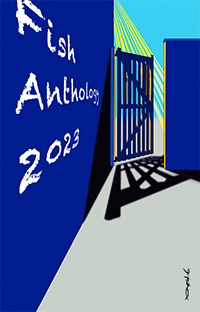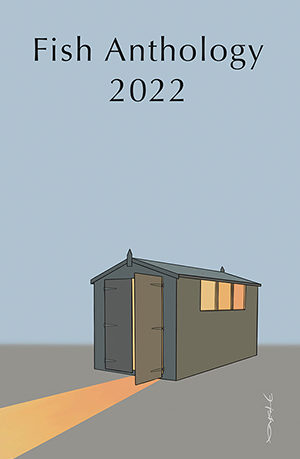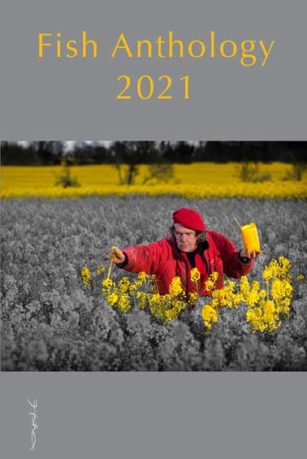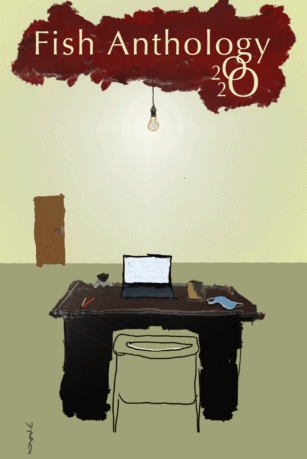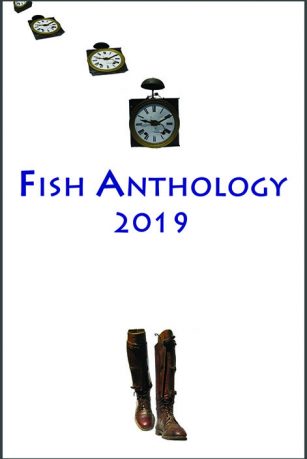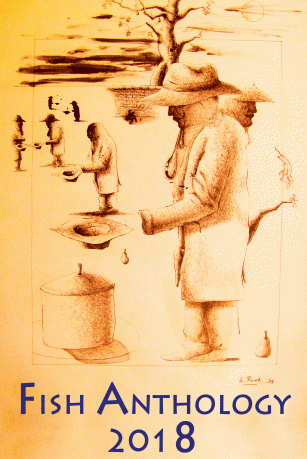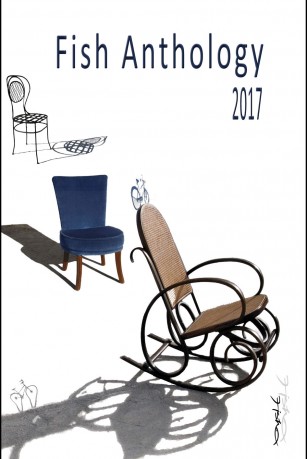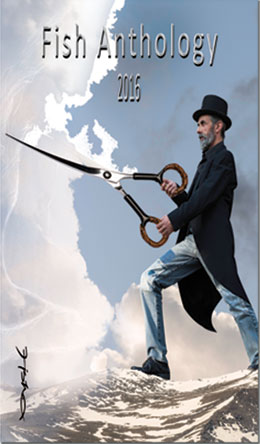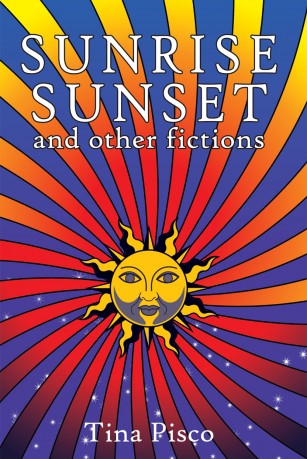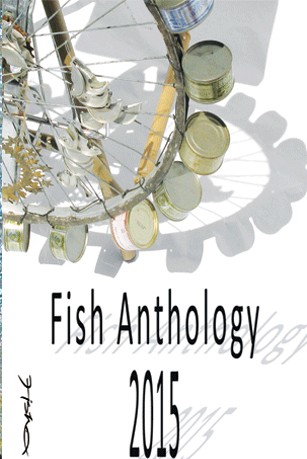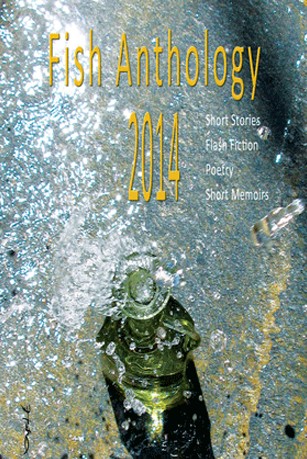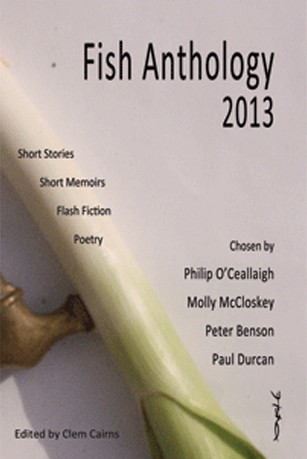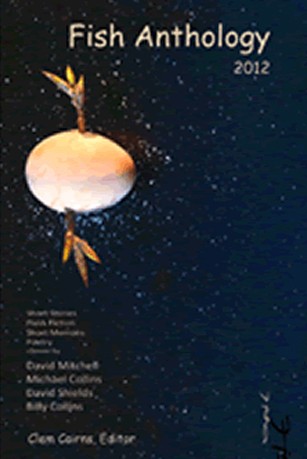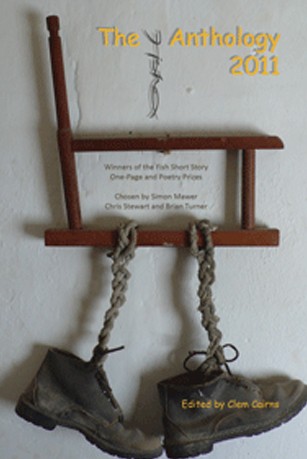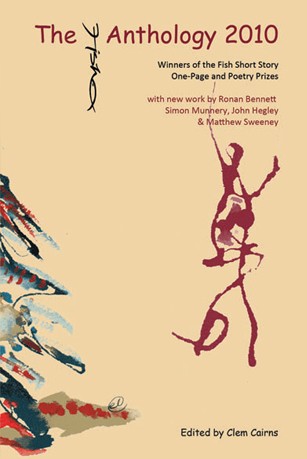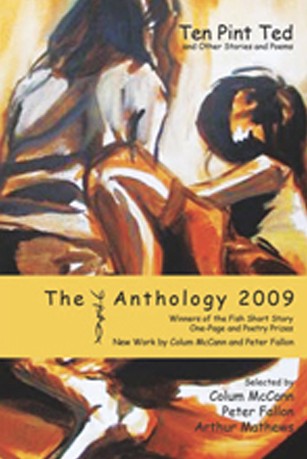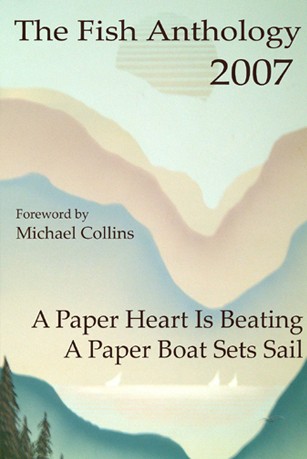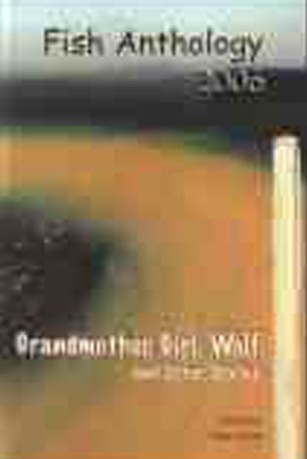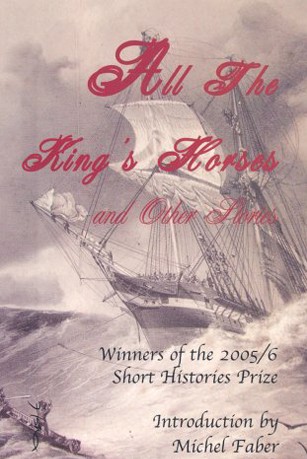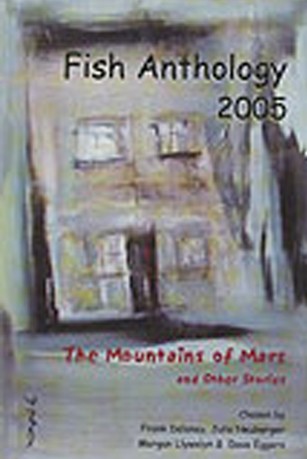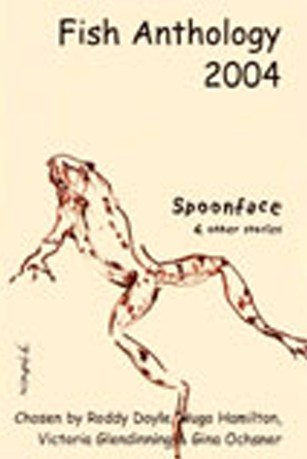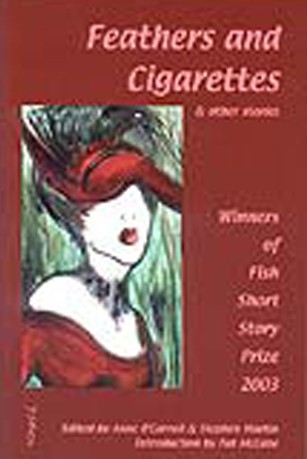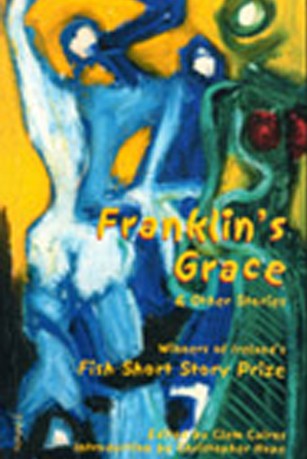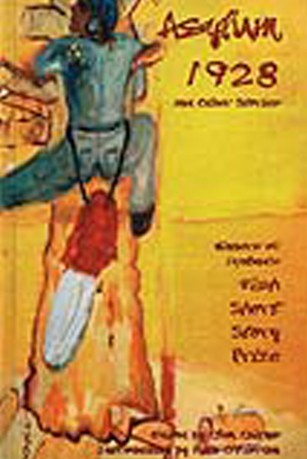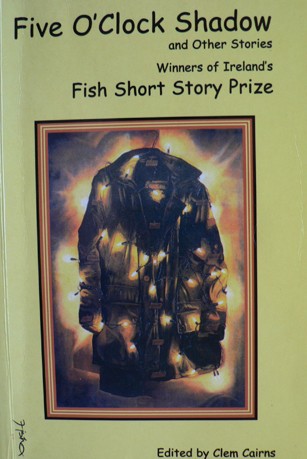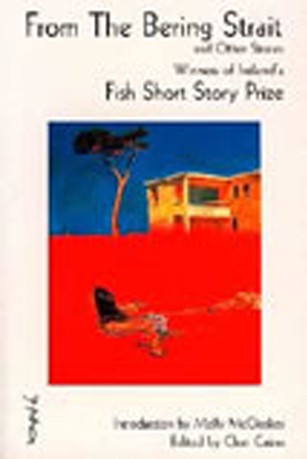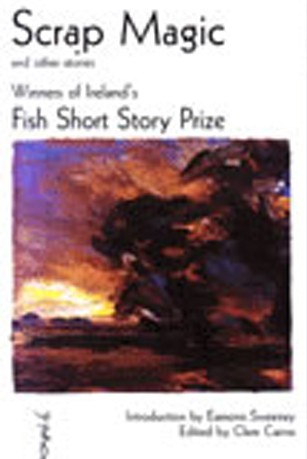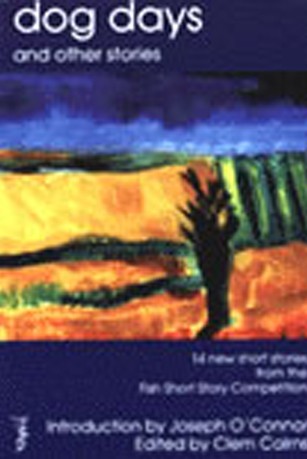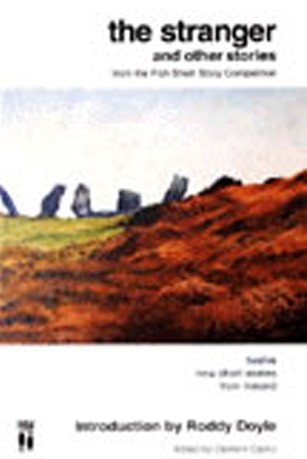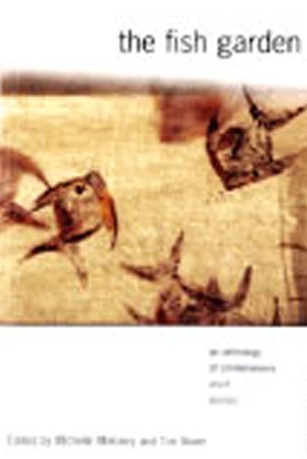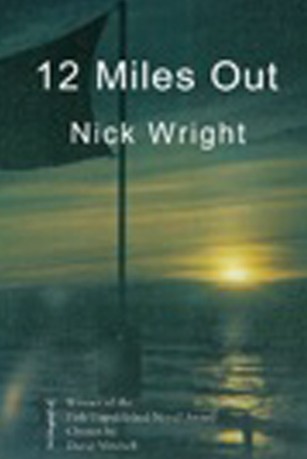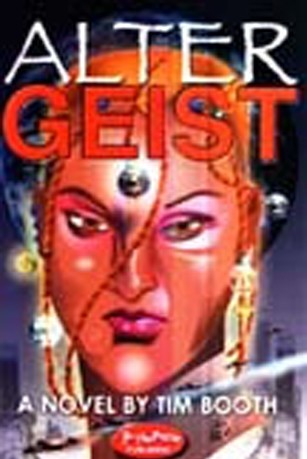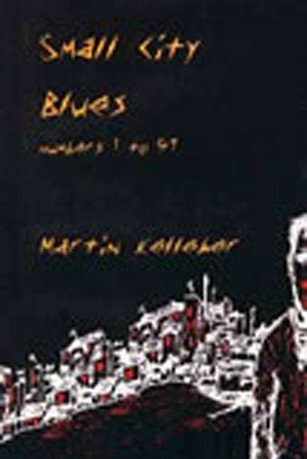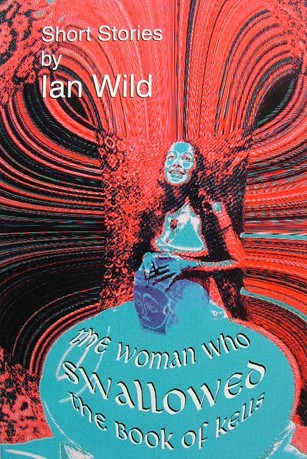Writing Tips
Writing Tips and information on writing by respected authors and Fish Alumni –
Rejection and Criticism by Suzanne Power
How to Get Published by Sean Lusk.
list of writing tips by Kurt Vonnegut.
How to Avoid Typical Mistakes When Writing a Detective Story by Lucy Adams
Two introductions from Fish Anthologies on some of the qualities needed to write good short stories.
Joseph O’Connor – Introduction Fish Anthology 1997.
Pat McCabe – Introduction Fish Anthology 2003.
Joseph O’Connor – Introduction to the 1997 Fish Anthology.
What kind of strange creature is a short story writer? I must confess that I don’t know. A high priest or priest of art? A wounded soul who can’t understand the real world and thus feels a need to re-invent it? A moralist? A Spinner of yarns? An entertainer? A prophet? Probably all of these things. Possibly none.
The single fact I can be sure about is this: writers are watchers. The one and only thing they have in common is an ability to look at the everyday world and be knocked out by it. Stopped in their tracks. Startled. Gobsmacked.
My favourite short story writer, Raymond Carver, has this to say:
You can read some of the short stories from these anthologies by visiting our Short Stories to Read Online page
Writers don’t need tricks or gimmicks, or even necessarily need to be the smartest fellows on the block. At the risk of appearing foolish, a writer sometimes needs to be able to just stand and gape at this or that thing – a sunset, or an old shoe – in absolute and simple amazement.
Another writer I love, Flannery O’Connor, put it even more strongly:
There is a certain grain of stupidity that the writer of fiction can hardly do without, and this is the quality of having to stare, of not getting the point at once.
There is only one trait that writers have in common and that’s it. They watch for the extraordinary magic that lies in the everyday. A writer is always quietly looking and thinking. Not willing inspiration but just being open to the world. This quiet looking and thinking is the imagination. It’s letting in ideas. It’s trying, I suppose, to make some sense of things.
In that sense, it is important for a writer to be always writing. Even when you’re not actually sitting with a pen in your hand. You don’t take days off. You don’t go on holiday from writing. Sometimes you don’t even go to sleep. If you’re serious about writing then you’re a writer twenty-four hours a day, in the office, in school, doing the dishes and in your dreams.
Writers have their eyes open. They keep them open all the time.
Ezra Pound said ‘fundamental accuracy of statement is the one morality of writing’. Naming things, calling things what they really are. This is all writers can do in an age where language has become debased and sterile.
James Thurber was a full-time writer. His use of his spare time is interesting: I never quite know when I’m not writing. Sometimes my wife comes up to me at a party and says, ‘Dammit, Thurber, stop writing’. She usually catches me in the middle of a paragraph. Or my daughter will look up from the dinner table and ask, ‘Is he sick?’ ‘No’, my wife says, ‘he’s writing something’.
The short story is one of the greatest, most challenging, most infuriating forms of literature. They look so easy! That’s the thing about really good short stories. They don’t read like they were written. They read like they simply grew on the page. When we read the work of a short story maestro like Joyce or Frank O’Connor or Richard Ford or Alice Munro or Mary Lavin, we think, yes, there is just a rightness about that sentence, that image, that line of speech. But anyone who has ever tried to write a short story will know just how tough it is to hit that reverberating note, to say something – anything at all – worthwhile about the human condition, in five thousand words or less. It’s hard.
A short story is a glance at the miraculous. Joyce used a religious word. He called his stories ‘epiphanies’. A good short story is almost always about a moment of profound realization. Or a hint of that. A quiet bomb. There is a record by the American singer Tori Amos called Little Earthquakes. That’s a good metaphor for a short story. Often, a good short story will be a little earthquake.
It is a form that has all the power of the novel – some would say more – but none of the self-importance. A deftly imagined and carefully written short story like Karl Iagnemma’s Dog Days, or Frank O’Donovan’s Johnny Mok’s Universe, or Anne O’Carroll’s Flame, by concentrating on the particular, can say a whole lot about the universal.
So let us get idealistic for a second or two. V.S. pritchett’s description of a short story is ‘something glimpsed from the corner of the eye, in passing’. And our task as short story writers is to grab that moment with both hands and invest it with all of the power and humanity and sympathy we can. To develop our skill at language and characterisation and structure and dialogue – our fundamental accuracy – for one reason. To tell the truth. That’s what all the hard work comes down to in the end.
If we forget that, we forget everything.
Joseph O’Connor Dublin 1997
Pat McCabe – Introduction to 2003 Fish Anthology
Henry Thoreau said that it didn’t have to be long but it would take a long while if you wanted to make it short. What was he saying this about? About the form we know as the ‘short story’. Everyone over the years has had something to say on the subject. For V S Pritchett it was an athletic form. If you got a good start you could sprint to the end, unlike the nineteenth-century novel. For Frank O’Connor, it was the closest you could get to the lyric poem, in that the novel requires far more logic and far more knowledge of circumstances, whereas a short story can have the sort of detachment from circumstances that lyric poetry has.
Katherine Ann Porter wrote her stories in one sitting. Or so she said. But then writers say all sorts of things. Another thing that was said about the form – and I think it’s a good one – can be attributed to William Trevor. That it’s the ‘art of the glimpse’. Meaning that if the novel is like an intricate Renaissance painting, the short story tends more towards impressionism. It is an explosion of truth and its strength ought to lie in what it leaves out as much as what it puts in, if not more.
O’Connor has said that for him short stories and plays go together – you take a point in time and develop it from there; there is no room for development backwards. Thomas McGuane made a similar point regarding the relationship between novels and movies, and I think it is pertinent to the story as well – in that, in the writing of screenplays you are conscious of the dangers of ‘dead air’. You are not quite as willing to leave ‘those warm-ups’ in there, those pencil sharpenings and refillings of the whiskey glasses and those sorts of activities. You are very conscious of dead time, in the same way that playwrights are, or ought to be. Twenty mediocre pages, attests McGuane, won’t even hurt a novel but in a movie screenplay they are fatal. You can’t afford to hint at such slackness while writing a short story either.
P G Wodehouse said that his tales began in all sorts of different ways. He would start to write and in the process whatever it was he’d started off with got lost. On other occasions, stories would simply come out of nowhere. Irwin Shaw, author of Rich Man Poor Man, said he loved its freedom. How it refuses to conform to any theory. Which would seem to render commentaries such as this one redundant. But perhaps there are, indeed, one or two constants. One of them being, as William Trevor has pointed out, that whereas the novel tends to imitate life, the short story is ‘bony’, and cannot wander. It is essential art.
This quality was uppermost in my mind while I was reading these submissions. I was looking for narratives where form and content were seen to synthesise perfectly, providing this ‘essential quality’. As Trevor has written elsewhere, this ‘explosion of art’.
But, most of all, I was searching for the ‘new.’ In the nineteen–seventies, the critic Alan Titley wrote a much-admired article entitled ‘Not Another Irish Short Story!’
It was so devastatingly incisive that I remember going into hiding for weeks, my suitcases at the time being full of adolescent comings-of-age, not to mention any number of sagacious old farmers pondering their lives as the townland’s lake swallowed up the local sun.
Lest anyone should think this is some sort of roundabout way of suggesting that what I was after were stories about ‘Modern Ireland’, and up-to-the-minute anatomies of ‘Celtic Tigers’, nothing could be further from the truth. I didn’t care where they were set or what they were about but I wanted them, more than anything, to surprise or startle me. Astonish me, indeed.
For I think that was what Alan Titley was getting at – that the subject matter was in danger of becoming tired, and its treatment often as well . For me, the surprise tends to come from the style and when that happens I have to admit to being delighted. The Terrible Eyes of Big Hawkins by Geona Edwards was so accomplished it surprised me, sealed, as it were almost, completely within its claustrophobic and occluded world. Even if that world isn’t entirely original, familiar as it is from any number of steamy Mason Dixon rural firecrackers. The Last Elf-Mite by Jason Bellipanni most definitely did surprise me, like some skewed but ordinary Harold Pinter domestic episode eccentrically reworked by Isaac Asimov. I found it courageous and fastidious and unflinching in its courage. A writer well worth watching, I feel. But then there were many writers whose work came my way that I feel that this can be said about . Mazes by Linda E. Clopton was a very good, if quite traditional story, meticulously sculpted and without a single superfluous detail.
There was a lot of writing from America, I noticed, and much of it good, I have to say. But I would have preferred more recklessness here – initially, I mean – the shape can come later – and perhaps less of the admittedly excellent craftsmanship that seems to be the forte of the writing schools in that country.
What did surprise me was the manner in which much of the Irish writing approached its subject with an almost weary disinterest or knowledge of the society in which the story was taking place. One hopes that writers are not falling for this would-be deracinated, citizen-of-nowhere nonsense without which Gogol’s Chichikov or Joyce’s Bloom wouldn’t have been half the men they were.
But, that said, there was much talent on view, and if I suggest that these writers should lock themselves in libraries, there to devour every possible tome on history and criticism and the politics of society, it is only because I think their work would be immeasurably improved. Especially now that the past has started to rumble and in far-off Mesopotamia the past has once again become the present as it has done, from Cheever back to Caesar and when Horace and Virgil were chewing their pens.
I would like to pay tribute to Fish Publishing for bringing this work to my attention and for providing writers with this platform. In a world where twenty screens of digital bullshit seem to be revolving without respite, cobwebs are gathering on majestic church organs and you can’t turn on the radio without yet another irate ‘taxpayer’ complaining yet again about his ‘rights as a consumer’, there is nothing that can surpass the ‘explosion of art’ and its obstinate insistence on making sense of things, these dedicated scribes, as though some secret society, heroically, humbly, espousing a noble cause.
Pat McCabe, Sligo 2003
Writing Tips
Kurt Vonnegut – Eight Rules for Writing Fiction:
1. Use the time of a total stranger in such a way that he or she will not feel the time was wasted.
2. Give the reader at least one character he or she can root for.
3. Every character should want something, even if it is only a glass of water.
4. Every sentence must do one of two things — reveal character or advance the action.
5. Start as close to the end as possible.
6. Be a sadist. Now matter how sweet and innocent your leading characters, make awful things happen to them — in order that the reader may see what they are made of.
7. Write to please just one person. If you open a window and make love to the world, so to speak, your story will get pneumonia.
8. Give your readers as much information as possible as soon as possible. To heck with suspense. Readers should have such complete understanding of what is going on, where and why, that they could finish the story themselves, should cockroaches eat the last few pages.
Writing Tips
Rejection and Criticism

Writing Tips by Suzanne Power
We have to learn to get used to both. The most brilliant receive them and the best take what they can from parts of them and rise above the rest.
Criticism
The most important thing to remember within this group is that we are working writers. You have paid to be part of it and you did not pay to be slated. So in offering criticism today or throughout the week please begin with what you liked about the person’s work. Then make points that are helpful, not destructive.
Criticism in question form works best. The writer then has questions to answer, something to respond to. You have to give your overall impression, but you don’t have to give it unkindly.
If only editors and agents learned from this advice they would receive far better manuscripts from those who are unpublished. Their slush pile would be turn back into driven snow. Sadly, often they are fielding far too many requests, reading too quickly and working too hard. So they do tend to take it out on people who are not yet successful. Note the use of the word ‘yet’. Everyone is rejected. Everyone remembers what their rejection letters said. Everyone remembers the bad lines in reviews.
Even when books are accepted, you will be criticised in your editing process. This can make you feel like you wish they’d never taken you on, or wonder why they did in the first place, but it’s all part of the process and it will make your story better.
Rejection
When students ask me what being rejected is like, I say that it is like losing a lover. It depends on how much you loved them and how cruel they were in parting. Gradually you begin to wear repellent against the sting and you know that if you cave in to criticism, you are not doing your efforts justice.
I read one piece of advice that you have to read the critique, read your work with regard to it, change what you can and send it straight out in the post again. Don’t hide work in drawers for your grandchildren to find when they’re clearing out your house.
You deserve better. And you will get it if you persevere.
Exercise 1
In critiquing the work of others, you need to answer the following questions:
Title
If it has one, does it work for you? Does it evoke mystery and a sense of involvement?
Language
Is it clear? Is it evocative? Is it giving impact to the story?
Character & Setting
The author’s description, was it true to the character?
Credibility, did you believe in this person enough to be intrigued?
What they said, the dialogue, did it ring true to the author’s description of them?
Did the author draw the scene as well as they did the people in it, or better even? If not why?
Plot/Storyline
Was it sustained from the start?
Did it flow once it began? Were you carried?
Was the writing good and the construction in need of work?
Was the writing in need of work, but the construction good?
Did the author feel like a natural storyteller?
Was this story original enough for you to want to know more?
Was it too involved, did it need simplifying?
What did you need explained to you, if anything?
If the plot isn’t working, for you, can you suggest how it could be restructured?
Pace & Impact
Was there anywhere were you lost concentration, even momentarily?
Were you having to make an effort to listen?
What parts worked best for you?
Dialogue
Was it like a real conversation?
Was it flowing or stilted?
Was it stereotypical? Often it’s in dialogue that we resort to this, using stock phrases and cliché instead of reaching for the character’s true voice.
Exercise 2
Learning to Receive Criticism.
My first response, now that I have learned to have one, is to thank my editor, do some horse trading on some of the points I don’t think I can give on and finish by thanking them again, saying: “you’ve helped me to make this a better story.”
I like to receive the comments in writing, after a long conversation either face to face or over the phone, and then I tick them one by one as I address them.
This is down to you, but here are some suggestions. First of all – thank the reader who is commenting for their contributions. If you can be gracious you can let down your defences, you can learn from what they have to say.
Listen. Write down what they are saying. If you didn’t get it all get the rest of it after the session.
Use the rest of this page for your notes if you wish.
Remember, those reading your work are expressing an opinion. However well informed it is, it is still only that. You are the final critic.
Exercise 3
Dissect a page of a published novel. Take an in-depth look at how it moves on storyline, character, setting, plot, circumstance and character. Does the dialogue ring true? Are all the components working in the same direction?
Writing Tips
How to Get Published
by Sean Lusk
Why is getting published so very hard to do?
It should be hard, shouldn’t it? To get published. Walk into any bookshop, pick up the first book you see, turn the lime green/bright pink/gold embossed cover and chances are you’ll think it a load of rubbish. You’ll wonder how it ever got published in the first place. And all the while your brilliant novel, that prize-winning, spine-tingling sure-fire hit still sits somewhere in a slush pile or on your hard drive or even further back in the recesses of your mind.
As someone who one Tuesday morning about five years ago resolved to become a successful novelist, I would like to share with you my agonies, divided into seven easy (huh! easy?) steps to getting published.
Step 1: Read
You really can’t write unless you read. A lot. If you’re trying to write a modern literary novel, read all the other modern literary novels you can lay your hands on. They’re your competition, some of them are actually quite good; and you can steal their ideas. Read plenty of other stuff, too. Thrillers for plot, plays for dialogue, classics for their mastery, short stories for their precision.
Step 2: Write
Funny, that. But after a few weeks of sullen resentment that I was not yet a published author, I realised that I’d have to write something first. A novel is big, so most people start with stories, which can be short. If you can write a story, you might be able to write a novel. If you cannot write a story, you should probably think about taking up photography instead. Not that stories are easy; they’re very hard. Get people to read your stories and comment on them. If they tell you that you are a great writer, they are lying and they aren’t helping you. A good reader will tell you what’s wrong and will make suggestions. You do not have to do what they say, but you do have to rewrite – about fifty times. Stories don’t spring into life, fully formed. What does?
Step 3: Learn
Lots of universities, colleges and local schools offer courses ranging from Masters degrees to evening classes. An evening class in a damp school hall can be just as good as a prestigious (and expensive) university course – or just as bad. In any writing group there will be three people who you are sure must struggle to write a shopping list, let alone a story. There will be one lunatic and two people who actually wanted to do pottery but that class was full. There will also be one sharp and sassy writer who will be your best critic and best writing friend, and you will become theirs.
One week residential courses (like those organised by the Arvon Foundation: www.arvonfoundation.org can be really useful, not only for learning but also for making useful contacts. There are also lots of literary festivals which offer readings, workshops and seminars, of which the West Cork Literary Festival is one of the best.
Step 4: Compete
Enter your stories in competitions. There are lots of these, mostly advertised on the web. If you get nowhere, you’re probably not as good as you think you are; go back to steps 1, 2 and 3 and practice. If you find yourself regularly short listed, or even start to win prizes, you have probably already made….
Step 5: Develop your own voice
A distinct voice is what any book about creative writing will tell you that you must have, and they’re right. If you are a living miracle, you have your powerful and unique writing voice as a gift from birth. If not, you need to let your voice grow on the debris of bitter rejection for at least three or four years. Voice means:
-
Creating compelling, believable characters
-
Getting them to tell truth and lies to other characters
-
Telling a story that needs to be told and demands to be read, that never leaves a reader doubting it or you, and that has an ending.
Step 6: Get an Agent
You have very little chance of getting a publisher to look at your novel without an agent. Ideally you will be recommended to an agent, perhaps by an established writer who has judged one of your stories at a competition or met you at a festival or on a course. Alternatively, cold call. This takes courage, but so does writing a novel, doesn’t it? Whatever you do, don’t simply send off your work without first speaking to the agent. Some agents like detailed synopses, some like brief ones; some want to see one chapter, some three; some only want to see a book once it’s finished, others in its early stages. You need to know this, and you can only know by asking them.
Step 7: Get published
This is the tricky bit. But you’ll never get there without walking, staggering and crawling your way over the first six steps.
Incidentally, it’s not about getting to step 7. It’s all about step 2. If it’s not the writing you love, then forget it, my love.
Writing Tips, Sean Lusk May 2005
How to Avoid Typical Mistakes When Writing a Detective Story
By Lucy Adams
Writing a detective is not necessarily different from any other story; real challenge is to make the story fascinating, thrilling, and exciting even for the most sophisticated minds. Turn on the TV or go to the bookstore, and you’ll see how much people love mysterious stories with unusual outcomes.
Reading the best detective stories, you never know the next plot twist, let alone the end of the story. When you finally learn the outcome, you wonder how short-sighted you were!
Well, even pen wizards, not to mention ordinary writers, can find this effect difficult. Alas, naive stability is a typical feature of modern detectives. You open the first page, read the first chapter, and already understand who is a criminal, so the rest of the story turns into the waste of time: once there’s no intrigue, the brain refuses to work.
If you’re going to write a detective story, you must overcome huge challenges, but that mustn’t discourage you! Below are some tips that I hope will somehow facilitate the big task of writing an awesome detective story.
By the way, you can always get a bit of advice along with essays for you at BestEssay.
#1 Explore the Detective Structure and its Characteristics
Read as many similar stories as possible. Analyze, study, and draw conclusions, trying to understand the structure of the storyline along with the role of interior description, landscape, and characters. Take the best ideas from the best stories and avoid horrible mistakes made in average stories.
#2 No Single Day Without a Thought and a Line
This tip applies to authors in all genres, not just the detective genre. Keep a diary and write down all sudden ideas that you stumble upon. Day-by-day preparation will greatly facilitate your work and allow you to include all the interesting details that you come up with during the project.
Be sure to write methodically every day. The detective genre is a very thin chain, where each link is priceless. A long vacation will take you away from the original idea and may lead to quite unexpected consequences. Therefore, try to avoid any entertainment events and everything that could distract you from your work. It’s much better to spend a week or a month working hard than lose inspiration for an uncertain time.
#3 Edit Even the Smallest Paragraphs
Please don’t wait until you write 50, 100 or 500 pages to make adjustments. As practice shows, the best way is to edit a small amount of text the day after you write it. If you can’t handle editing, ask friend/relatives to read and point out possible mistakes or hire a professional editor. The main point is to ask for help from people who can criticize objectively.
#4 Decide on the Number of Characters
As a rule, the greater the number of characters in a story, the harder it is for the reader to keep track of the narrative. I believe the optimal number of protagonists is between 3 and 5. As for occasional individuals, feel free to include about a dozen.
Sure, you should pre-determine for yourself who is right and who is wrong, as well as think over the intrigue, innocents, and criminals.
#5 Avoid Long Monologues
Nothing bores a reader as much as long author’s monologues. Believe me, the reader is much more interested in listening to what characters say. Of course, it’s easier to talk about how things actually happened than build dialogues and scenes. Personally, I’ve always felt that if you do not write everything in plain text, the reader will never understand the ingenious conception. But how wrong I was!
The detective story, as well as any other literary work, is a puzzle to think over. Readers are not so stupid; on the contrary, sometimes the reader thinks deeper than the author and notices the smallest details.
#6 Pay Attention to Nuances
Everything is important, including the size of the shoes and the color of the lipstick. The trick is not to overdo details, keeping the attention of the reader. Small doses are the key to success!
When you describe a person or room, the reader automatically associates it with the crime and tries to unravel the terrible secrets. Give the reader food for the mind and a bunch of keys, which he will cycle through until the very last chapter.
#7 Create the Intrigue and Avoid Stereotypes
This all depends on your creativity. The main thing is not to tire the reader and overdo it with deadly scenes. An accidental or deliberate killing, several thefts, a kidnapping, a loud quarrel or prolonged conflict with the unexpected outcome … Choose what you like and start to create!
Do not chase bloody showdowns or sinister descriptions of the crime. Not all people are able to read such a candid description, even if they are very fond of detective stories. Have mercy on people’s feelings, but at the same time constantly keep their interest. Send them on the wrong track, slightly opening the main part of the mystery, and finally, help to deal with the motives of the crime.
The reader should not notice your presence – they should be completely involved in the story. Therefore, it must be believable and vital, with all the contradictions and unresolved conflicts. Culprits are not always notorious villains; the homeless are not always alcoholics and parasites. Mothers may steal money to save their children; adults can lose their apartments for reasons other than drug addiction. Destroy stereotypes: addicts can be quite interesting and knowledgeable while doctors can easily be home tyrants or terminally ill.
People love the unusual and the ambiguous, but whatever way you choose, you should never engage in propaganda. Criminal offenses should be punished by law while morality – keep its values and priorities.
Detective story’s push the boundaries of our inner world. No story should be left without meaning, even if it is barely noticeable.
Bio:
Lucy Adams is an outsourcer from edublogawards.org. She is a generalist able to think outside the box. Lucy is interested in marketing, psychology, design, traveling, education, and many other niches. She’s open-hearted and always in touch, so be sure of getting a fast and grounded response to each and every request.
Good luck with all your writing. Hope you found some useful writing tips here.



